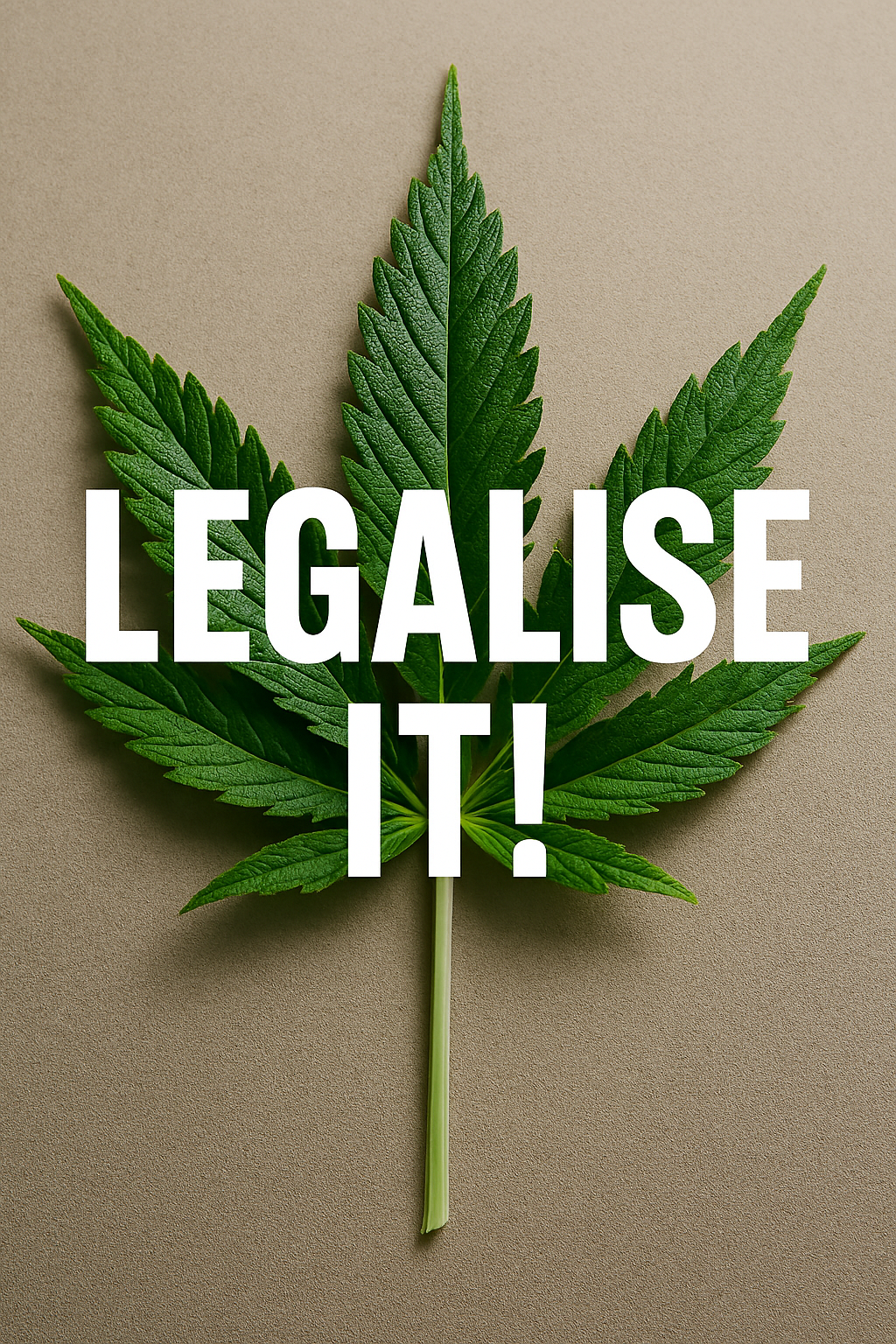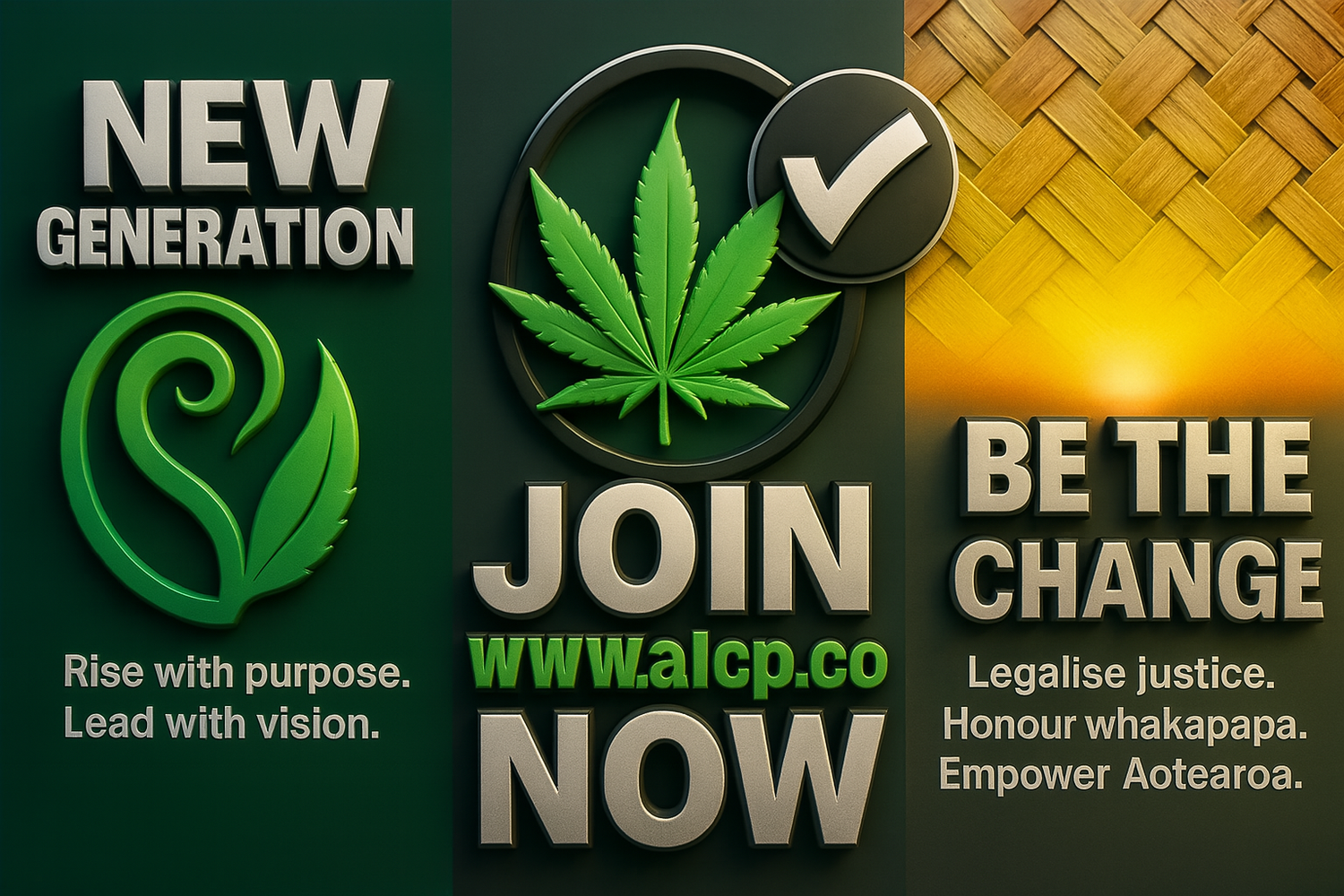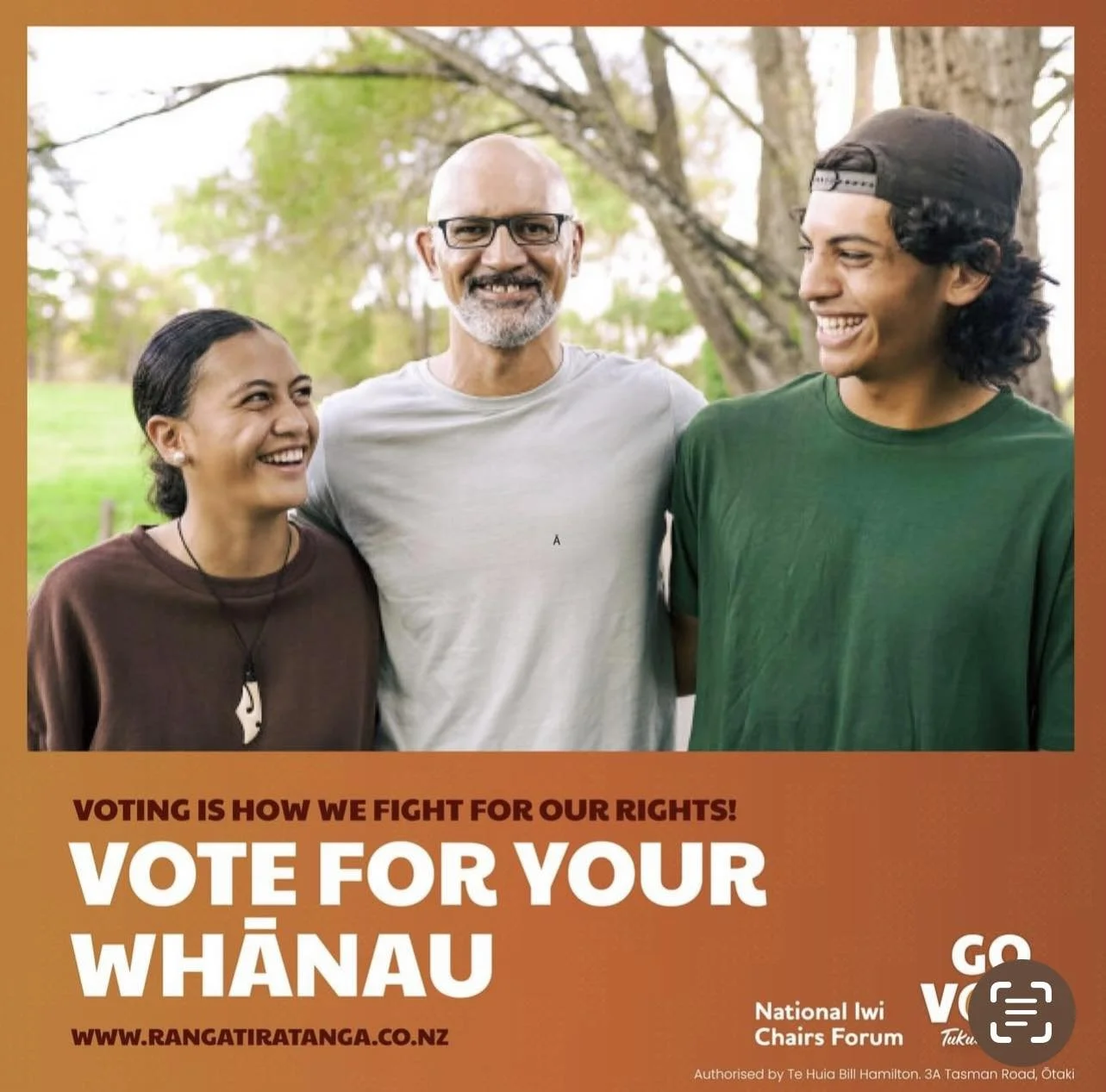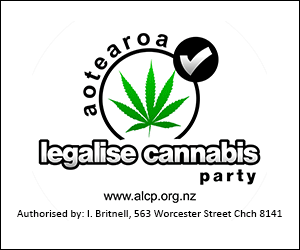
Local Body Council Elections 2025
Three candidates stand out for their clear and active support of both the hemp industry and adult rights regarding cannabis cultivation.
These two candidates advocate for policies that promote the sustainable growth and development of the hemp sector, recognizing its economic and environmental benefits for Aotearoa.
Furthermore, they firmly support the legal right of adults to choose and cultivate cannabis at home for recreational use, emphasizing personal freedom, public health and responsible regulation.
Voting for these candidates means backing a future where innovation in hemp thrives
and responsible adults can exercise their rights safely and legally.
Blair Anderson is the clear choice for Christchurch Mayor in 2025.
With a deep commitment to transparency, community well-being, and sustainable growth, Blair offers practical solutions to the challenges facing our city. His leadership promises a Christchurch where every voice is heard, public services are strengthened, and environmental stewardship is prioritized. Electing Blair Anderson means choosing a future-focused mayor dedicated to building a vibrant, inclusive, and resilient Christchurch for all its residents.
"Gangsta Culture" serves the political agenda of Five Eyes
"Gangsta Culture" serves the political agenda of Five Eyes. Blair Anderson, Christchurch Mayoral Candidate 2025
I have a problem with the integrity of the reasoning surrounding today's announcement regarding the Federal Bureau of Investigation and New Zealand sovereignty. (Remember Edgar Hoover's manifestation of 'the drug problem' when the FBI lost relevance post the prohibition of the alcohol era).
The media is short on specific details about the FBI's office, which FIRST OPENED IN AUCKLAND in 2022 also focusing on NZ's gang-drug linkages. Now they want a deep dive, but are short on operational details, so accuracy is crucial.
First, "Where": It's in the US Embassy complex in Central Auckland. It's not just a liaison desk but a physical office opened (June 2022), and note, it is the FBI's first permanent Pacific outpost beyond Australia.
"Who?" the key agencies involved – FBI obviously, but also NZ Police's National Organised Crime Group, including the Police National HQ Drug Intelligence and Customs. [The FBI agents were likely embedded with NZ counterparts; it's not unilateral; the "joint" aspect is likely a bit too politically sensitive and likely above most media's pay grade in NZ.
"Why" has layers: We heard today that it is to combat meth supply chains (Pacific PIPE) and money laundering. Looking a bit deeper: China's influence in Pacific islands creates a vacuum the US wants to fill via security cooperation.
The Gang angle: NZ gangs now work with transnational cartels, making this an FBI priority. (That's what happens when they hear better stories; it validates the deficit-funded budgets. Itself a terrible way to manage policy efficacy.
Ah, did the media ask? I didn't hear it ask that question? But might it wonder – is this controversial? Yes, but I am yet to hear any NZ politicians call it "sovereignty infringement."
Did the FBI aid Operation Trojan Shield to show impact? Stats on seizures (200kg meth in 2023) might make it credible. But that might reveal more than Police HQ wants us to know.
Could that be the geopolitical tension with China? The previous FBI Director Wray publicly framed it as countering "malign influence," but NZ media downplays that angle. Tricky, but relevant. (I recently
toured Samoa and have gained my own intel on it and Fiji).
Here's my breakdown of the FBI's establishment of an office in Auckland in 2022, and the latest visit to Parliament by the FBI, addressing the Where, Who, and Why:
Leadership: The Auckland office is staffed by FBI legal attachés ("Legats") that are embedded with NZ authorities. Operations are, I suspect, coordinated by/with the FBI's Honolulu Field Office
(responsible for the Pacific).
Why:
Strategic Objectives.
Primary Motivation: Combat Transnational Organised Crime Methamphetamine ("P"), Cocaine, Heroin, LSD, MDMA, and Cannabis Supply Chains: inc Laundering
NZ gangs (e.g., Mongrel Mob, Headhunters) source meth (and less so precursors) from Mexican cartels (Sinaloa, Jalisco) and Asian syndicates (China, Myanmar). Yep... been there too!
The FBI currently tracks money laundering, shipping routes, and chemical suppliers feeding NZ's meth market (est. worth NZ$1.3+ billion annually, small bananas on a global scale, where the drug
trade is bigger than textiles). Beyond just 'some' Drugs: Policing Cybercrime and Fraud: Disrupt ransomware groups and scams targeting U.S./NZ businesses, also linked to Russian [or North Korean] actors using Pacific infrastructure.
Gang-Cartel Integration: We know there are ties between NZ gangs and global networks (e.g., Australian bikie gangs, U.S. prison gangs).
Geopolitical Factors:
Pacific Pivot: Part of the U.S. "Pacific PIPE" (Pacific Islands Partnership Initiative) to counter China's influence in the region. Organised crime in a prohibition paradigm exploits weak
governance/communications/distances in Pacific islands (e.g., Tonga, Samoa, Fiji) for trafficking.
Intelligence Gap: Prior to 2022, the FBI relied pretty much on intermittent deployments. Its permanent office enables real-time data sharing with NZ agencies AND access to NZ's extensive camera and
cellular network, enabling pattern matching and interagency coordination.
High-Impact Cases have validated the necessity, like Operation Trojan Shield (2023), when FBI/NZ Police used encrypted AN0M devices to infiltrate gangs, leading to 200+ arrests and seizure of
613kg of meth. "Operation Ghost" also in 2023 dismantled a Mongrel Mob-linked network importing meth via fishing vessels, seizing 200kg of meth worth a reported NZ$140m.
Controversies and Criticisms, esp. Sovereignty Concerns.
The Green Party questioned FBI overreach, citing risks to NZ's independent foreign policy.
Effectiveness Debate: What does Success vs Failure look like? Seizures spiked (e.g., 2023 meth seizures up 47% from 2021). Touted as a success, it is, in reality, evidence of policy failure. Meth remains cheap and abundant; gang membership grew 22% post-2022 (NZ Police data).
I am expecting the FBI to prioritise U.S. interests (e.g., fentanyl threats) over NZ's 'homegrown' drug culture and imported prohibition-fueled meth crisis.
So what is the future outlook? We already see the expanded mandate undoubtedly; the office now includes counterterrorism and counterespionage, already citing threats from China/Russia in the Pacific.
(While our WinnieP side steps that one)
Tech-driven policing, especially joint cyber units targeting gang communications on encrypted platforms (e.g., Signal, Telegram, Dark Web, etc.).
Deepening the dialogue, especially targeting 'Māori Partnership', we can expect collaborations with iwi (tribal) police to address gang recruitment fostering mistrust, alienation and the unintended consequences of 'narc' culture in marginalised communities. Expect more tears before bedtime.
In essence, the FBI's Auckland and now Wellington office is a response to NZ's role as a transshipment hub for global drug cartels and its escalating gang-violence crisis.
While 'publicly' it enhances intelligence capabilities, I argue it reflects the USA's 'drug war' policy, legacy of their "hard enforcement" approach that overlooks root causes (poverty, addiction) – and risks entangling NZ in U.S. geopolitical agendas at a crucial time in world affairs.
My thoughts on Judith Collins)
Where: Location and Context Physical Location: The NZ FBI office is housed within the U.S. Embassy complex in Central Auckland (23 Customs Street).
Jurisdiction: It serves as the FBI's first permanent physical presence in the Pacific Islands region (beyond Australia), reflecting New Zealand's strategic role in transnational crime networks.
Timeline: Announced in 2021, officially opened in June 20222. Who: Key Agencies and Personnel Lead Agency: The FBI's International Operations Division, with agents specialising in organised crime, cyber threats, and counterterrorism.
Engaged Partners:
NZ Police: National Organised Crime Group (NOCC),
National HQ Drug Intelligence,
Police Financial Crime Group,
Ministerial Inter-Agency on Drug Policy,
Ministry of Internal Affairs, [ironically a primary driver of 'P' policy]
NZ Customs Services, [focused on border interdiction.]
U.S. Agencies:
DEA, [drugs]
Homeland Security (cyber/security), and
Diplomatic Security Service
just saying....
Blair Anderson (BlairforMayor/Christchurch 2025) -- Blair Anderson Social Ecologist 'at large' Christchurch, New Zealand nz cell 021 823647
http://facebook.com/mildgreens
http://mildgreens.blogspot.com
http://efsdp.org
The Deloitte Cannabis Report
As Canada enters its third year of legalized recreational cannabis, what’s next for the cannabis industry? What are the new growth opportunities for an industry that has reaped the rewards of years, if not decades, of pent-up consumer demand and interest? Deloitte aims to answer those questions in Seeding new opportunities, our 2021 report on Canadian cannabis consumers. The study is based on a nationwide survey of 1,000 such Canadians aged 18 and older, conducted on the firm’s behalf between January 6 and 13, 2021. We also included supplementary insights from discussions with retailers and licensed producers, and explored the preferences and behaviours of Canadian millennial and Generation Z cannabis consumers provided by Drop Technologies Inc. Drop is a consumer-led mobile rewards platform that can create on-demand surveys targeting respondents based upon verified in-store and online purchases—in this instance, of cannabis products. We examined the usage habits and behaviours of three distinct groups of Canadian cannabis consumers—existing, new, and returning—to uncover the most promising growth opportunities for the sector. For this report, existing consumers are defined as respondents who had consumed cannabis prior to September 2020 and continue to do so; new consumers are those who first experienced cannabis on or after September 2020; and returning consumers are those who resumed cannabis use on or after September 2020 after having not consumed it since before October 2018, when it was legalized nationwide.
Vote Michael Feyen for
Northland Far North
Local Body Elections.
Michael cares deeply about the Far North community and understands its unique needs. He focuses on sustainable growth, better infrastructure, honesty and an open leadership.
Michael supports protecting the environment while promoting responsible economic development,
keeping the Far North a great place to live, work, and visit.
Choose Michael Feyen for reliable,
dedicated in putting the Far North first.
Your voice and future matter.
Why I'm standing…
New Zealand needs a paradigm shift in the way we are governed
– Governance from the ground up.
My experience and knowledge gained as an electrician, policeman and elected roles including Palmerston North Councilor,
Horowhenua District Councilor, HDC Mayor and Mid Central Health Board. I also ran a successful staff development company.
I want to support NZ to bring transparency in the way
policies are made.
My priorities…
Achieve self-governance for the district of Northland.
Bringing the Hemp Industry to the Far North.
Stop the loss of our productive land to foreign companies as a result of carbon farming.
watch Michael’s pitch
New Zealand Herald
Wairoa mayoral candidate
Camden Gaskin wants council-run
cannabis business
By Linda Hall LDR reporter - Hawkes Bay
11 August 2025
Wairoa mayoral candidate Camden Gaskin wants to green light a council-run medicinal cannabis business in the district.
He envisions it would employ 200 contractors and deliver significant economic benefits.
There are four mayoral candidates in the small northern Hawke’s Bay town; Gaskin is going up against incumbent Craig Little, current deputy mayor Denise Eaglesome-Karekare and Kurawari Panere.
Gaskin said, if a medicinal cannabis licence was obtained by the council, a mail-order business would bring cash flow and employment opportunities to Wairoa.
“Every cannabis business that has tried to grow under lights has gone broke, apart from the ones that import product. All you need is sunlight.
“At a retail price of $100 an ounce, a mail order business will bring desperately needed cash flow and employment opportunities to Wairoa, but it would have to be kept away from under 18-year-olds.”
He said if elected he would also like to help revive a culture of pub drinking and bring horses back to Wairoa racecourse.
“The racecourse is the strongest marketing asset in town. We could have race meetings, concerts and other events that would attract visitors to our region.”
Gaskin said his father was an alcoholic, but he never knew that until he was 17.
“He would always drink at the pub. Reviving this tradition would stop drinking and smoking in households where children live.”
Gaskin, now 70, said he ran a taxi business for 30 years in Wellington and then lived in Christchurch for 10 years.
He landed in Wairoa in 2018 after Googling the cheapest section available in New Zealand and coming across the town.
“After living in concrete jungles and having Boeing 747s flying overhead, I love it here where it’s all birds and bush,” Gaskin said of his residence.
“It’s God’s little acre.”
Gaskin said the town should consider running its own telephonic network, delivering free Wi-Fi to its residents.
“That would save ratepayers a hundy a month.”
He would also, if elected, push for a Royal Commission of Inquiry into the flooding in Wairoa during Cyclone Gabrielle.
He has multiple plans for the town if elected, including a container retirement village.
He said methamphetamine use was rife in the town and was an issue he wanted to talk about and address.
“If you want change, you have to vote for it.”
LDR is local body journalism co-funded by RNZ and NZ On Air.








